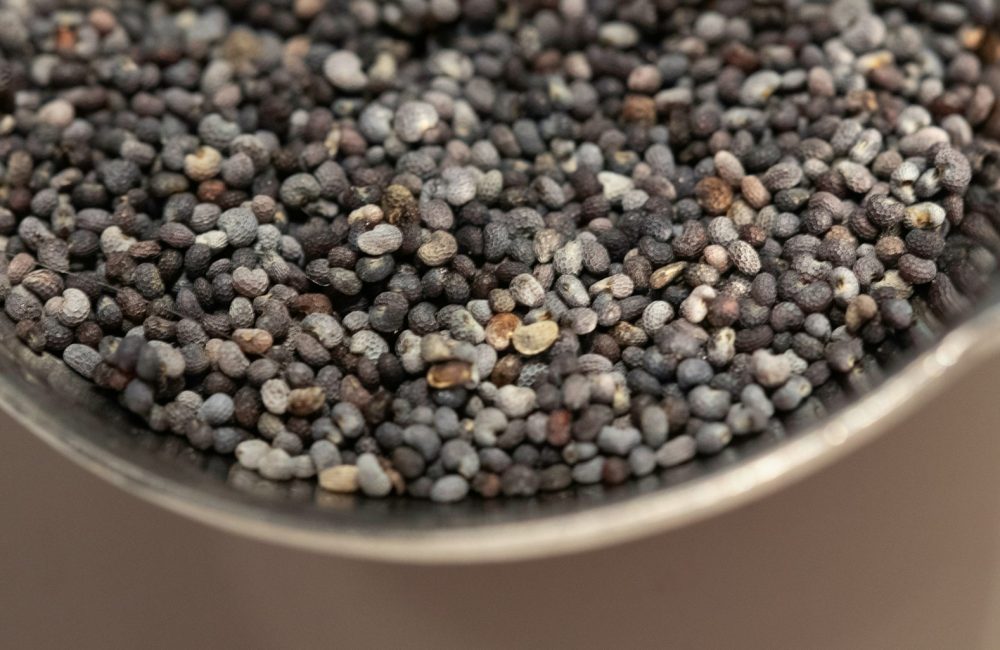Flexibility is a key component of overall physical fitness, and it’s essential for maintaining mobility, balance, and range of motion. Whether you’re an athlete, a yoga enthusiast, or just looking to enhance your daily movement, improving flexibility can make a significant difference in your physical performance and reduce the risk of injury. While stretching and exercise are crucial for increasing flexibility, your diet also plays a vital role in supporting muscle health, joint function, and overall flexibility.
Certain foods provide the nutrients your body needs to maintain healthy muscles, tendons, and ligaments, ensuring that they remain flexible and resilient. These foods are rich in vitamins, minerals, antioxidants, and anti-inflammatory compounds that help reduce muscle stiffness, improve elasticity, and support joint health. In this article, we’ll explore the 14 best foods for improving flexibility and how they can help you maintain a supple and agile body.
1. Leafy Greens (Spinach, Kale, Collard Greens)
Leafy greens such as spinach, kale, and collard greens are packed with essential nutrients that support muscle and joint health, making them excellent foods for improving flexibility. These greens are rich in vitamin C, which plays a key role in the production of collagen, a protein that helps maintain the structure of muscles, tendons, and ligaments. Collagen is crucial for keeping your joints flexible and preventing stiffness.
Additionally, leafy greens provide a good dose of calcium and magnesium, which are important for muscle relaxation and nerve function. Magnesium helps regulate muscle contractions and prevents muscle cramps, which can hinder flexibility. Including a variety of leafy greens in your diet can help ensure that your muscles and joints remain supple, reducing the risk of injury and promoting a greater range of motion.
Another benefit of leafy greens is their anti-inflammatory properties. Chronic inflammation can lead to stiff joints and limited flexibility, so consuming greens regularly can help reduce inflammation and keep your body moving freely.
2. Fatty Fish (Salmon, Mackerel, Sardines)
Fatty fish such as salmon, mackerel, and sardines are excellent sources of omega-3 fatty acids, which have powerful anti-inflammatory properties that support joint health and flexibility. Omega-3s help reduce joint stiffness and improve synovial fluid in the joints, which acts as a lubricant, allowing for smooth and pain-free movement.
In addition to their anti-inflammatory benefits, fatty fish are also rich in vitamin D, which plays a critical role in maintaining strong bones and preventing joint stiffness. Vitamin D helps the body absorb calcium, which is essential for bone health and joint flexibility. A deficiency in vitamin D can lead to joint pain and stiffness, which can limit your range of motion.
Incorporating fatty fish into your diet a few times a week can help reduce muscle soreness and joint pain, allowing you to move more freely. If you don’t consume fish regularly, you can also consider taking an omega-3 supplement to support joint health and flexibility.
3. Turmeric
Turmeric is a bright yellow spice that contains the active compound curcumin, known for its anti-inflammatory and antioxidant properties. Chronic inflammation is one of the main causes of joint stiffness and reduced flexibility, and curcumin has been shown to help combat inflammation in the body, particularly in the joints and muscles.
By reducing inflammation, turmeric helps promote better joint mobility and prevents the discomfort that can limit flexibility. Adding turmeric to your diet—whether in smoothies, teas, or curries—can help reduce muscle stiffness and improve your overall range of motion. Pairing turmeric with black pepper enhances the absorption of curcumin, making it even more effective in reducing inflammation and promoting flexibility.
If you have chronic joint pain or stiffness, incorporating turmeric into your diet or taking a curcumin supplement may provide significant relief and enhance your ability to move more freely.
4. Ginger
Like turmeric, ginger is another powerful anti-inflammatory food that can support joint health and muscle flexibility. Ginger contains compounds called gingerols and shogaols, which help reduce inflammation and pain in the muscles and joints. By keeping inflammation in check, ginger can help alleviate muscle soreness and stiffness, making it easier to maintain flexibility.
Ginger also has circulatory benefits, as it helps improve blood flow to the muscles and joints. Better circulation ensures that nutrients and oxygen are delivered efficiently to your tissues, supporting muscle recovery and reducing stiffness. You can add ginger to your diet by incorporating it into teas, smoothies, or stir-fries, or you can consume it in supplement form.
For individuals who experience muscle soreness or tightness after physical activity, ginger can provide natural relief and help improve muscle elasticity, contributing to better flexibility over time.
5. Chia Seeds
Chia seeds are a nutrient-dense superfood packed with omega-3 fatty acids, fiber, and protein, all of which contribute to better flexibility and muscle function. The omega-3s in chia seeds help reduce inflammation in the joints and muscles, making it easier to move and stretch without pain or stiffness.
Chia seeds are also rich in magnesium and calcium, which are important for muscle relaxation and preventing cramps. Magnesium helps regulate muscle contractions and promotes the release of tension, allowing your muscles to stretch more easily. Calcium supports bone health and ensures that your muscles contract and relax properly, both of which are crucial for maintaining flexibility.
These tiny seeds can be added to smoothies, yogurt, or oatmeal to give your body the nutrients it needs for flexible and resilient muscles. Because chia seeds absorb water and expand, they can also help keep you hydrated, which is important for preventing muscle stiffness.
6. Olive Oil
Olive oil, particularly extra virgin olive oil, is rich in healthy fats and antioxidants that can help improve flexibility by reducing inflammation in the body. The anti-inflammatory properties of olive oil come from its high content of oleocanthal, a compound that has been shown to have effects similar to nonsteroidal anti-inflammatory drugs (NSAIDs). This makes olive oil a great addition to your diet if you experience joint stiffness or muscle pain that affects your flexibility.
Olive oil is also a good source of monounsaturated fats, which help protect the joints and keep them well-lubricated. Including olive oil in your meals—whether in salads, drizzled over vegetables, or used in cooking—can provide long-term benefits for joint health and flexibility.
Additionally, the antioxidants in olive oil help protect the body from oxidative stress, which can contribute to muscle stiffness and joint pain. By reducing oxidative damage, olive oil promotes better joint mobility and flexibility, allowing you to move with greater ease.
7. Berries
Berries such as blueberries, strawberries, and raspberries are packed with antioxidants and vitamin C, both of which support joint health and improve flexibility. The antioxidants in berries help fight free radicals, which can cause damage to the muscles and joints, leading to stiffness and reduced range of motion. Consuming antioxidant-rich foods like berries can help protect your muscles and joints from oxidative stress and inflammation, keeping them supple and flexible.
Vitamin C, which is abundant in berries, is essential for the production of collagen, a key protein that maintains the structure and elasticity of joints and muscles. Collagen helps keep the connective tissues around your joints strong and flexible, reducing the risk of injury and stiffness. Including a variety of berries in your diet can help support collagen production and promote better flexibility.
Berries are also hydrating and low in calories, making them a great snack for maintaining overall health while supporting joint and muscle function. Whether added to smoothies, salads, or enjoyed on their own, berries are an excellent food for improving flexibility.
8. Almonds
Almonds are rich in vitamin E, a powerful antioxidant that helps reduce inflammation and support joint health. Vitamin E plays a crucial role in protecting the body’s tissues from oxidative stress, which can cause muscle stiffness and joint pain. By reducing oxidative damage, vitamin E promotes better flexibility and mobility.
Almonds are also a good source of magnesium, which is essential for muscle relaxation and preventing cramps. Magnesium helps regulate muscle contractions, allowing your muscles to stretch and move more easily. Including almonds in your diet, whether as a snack or added to meals, can help support flexible muscles and reduce the risk of stiffness.
Additionally, almonds provide healthy fats that keep the joints lubricated and promote overall joint health. A handful of almonds a day can go a long way in supporting your body’s ability to maintain flexibility and reduce inflammation.
9. Bone Broth
Bone broth is a nutrient-rich liquid made by simmering animal bones and connective tissues. It is packed with collagen, gelatin, and amino acids like proline and glycine, all of which are essential for maintaining healthy joints, muscles, and connective tissues. Collagen, in particular, helps support the elasticity and strength of your joints and muscles, making it easier to move and stretch without pain or stiffness.
Bone broth also contains glucosamine and chondroitin, compounds that help protect the joints and reduce inflammation. These compounds are often used in supplements for joint health, but consuming bone broth provides a natural source of these nutrients, which can help improve flexibility over time.
Drinking bone broth regularly or using it as a base for soups and stews can help reduce joint pain, support collagen production, and improve the overall health of your muscles and connective tissues, leading to better flexibility.
10. Papaya
Papaya is a tropical fruit rich in vitamin C and papain, a natural enzyme that aids in protein digestion and helps reduce inflammation. Vitamin C is crucial for the production of collagen, which keeps the muscles and joints flexible and resilient. Papain, on the other hand, has anti-inflammatory properties that help reduce muscle soreness and stiffness, promoting better flexibility.
The combination of vitamin C and papain makes papaya an excellent food for improving joint health and flexibility. Eating papaya regularly can help support the body’s natural healing processes and reduce inflammation in the muscles and joints, allowing for a greater range of motion.
Papaya is also hydrating and easy to digest, making it a great post-workout snack for those looking to recover from exercise and improve muscle elasticity.
11. Citrus Fruits (Oranges, Grapefruits, Lemons)
Citrus fruits like oranges, grapefruits, and lemons are packed with vitamin C, which is essential for collagen production and maintaining healthy connective tissues. Collagen is a key component of muscles, tendons, and ligaments, and it helps keep these tissues strong and flexible. Consuming plenty of vitamin C-rich foods helps your body produce collagen, which in turn supports joint mobility and muscle flexibility.
In addition to promoting collagen production, vitamin C has antioxidant properties that protect the muscles and joints from oxidative damage and inflammation. This is particularly important for individuals who engage in regular physical activity, as exercise can lead to inflammation and stiffness in the muscles and joints.
Incorporating citrus fruits into your diet can help improve flexibility by supporting joint health and reducing the risk of muscle tightness. Whether enjoyed as a snack or added to smoothies and salads, citrus fruits are a refreshing and nutrient-dense way to support flexibility.
12. Eggs
Eggs are an excellent source of protein, which is essential for muscle repair and recovery. The high-quality protein in eggs provides the amino acids needed to rebuild and maintain muscle tissues, ensuring that your muscles remain flexible and resilient. Protein also plays a key role in the production of collagen, which supports the structure and elasticity of joints and muscles.
In addition to their protein content, eggs are rich in vitamin D, which is important for bone health and joint mobility. A deficiency in vitamin D can lead to joint stiffness and muscle pain, which can hinder flexibility. Including eggs in your diet can help ensure that your body gets the nutrients it needs to maintain healthy, flexible muscles and joints.
Eggs are versatile and can be included in various meals, from breakfast omelets to salads and stir-fries. For those looking to improve flexibility, eggs provide an easy and affordable source of protein and essential nutrients.
13. Walnuts
Walnuts are another great source of omega-3 fatty acids, which help reduce inflammation and improve joint flexibility. Omega-3s are known for their ability to reduce joint stiffness and improve mobility by lubricating the joints and protecting them from damage. Consuming walnuts regularly can help alleviate muscle tightness and promote greater range of motion.
Walnuts are also rich in magnesium, which supports muscle relaxation and prevents cramps. Magnesium helps regulate muscle contractions, making it easier for your muscles to stretch and move without tension. Including walnuts in your diet can help support muscle flexibility and reduce inflammation in the joints, making them a valuable addition to a flexibility-focused diet.
14. Avocados
Avocados are a nutrient-dense fruit rich in healthy fats, vitamin E, and potassium, all of which contribute to improved joint and muscle flexibility. The monounsaturated fats in avocados help keep the joints lubricated, while vitamin E reduces inflammation in the muscles and joints. This combination of healthy fats and antioxidants makes avocados an excellent food for promoting joint mobility and reducing stiffness.
Potassium is another key nutrient found in avocados that helps prevent muscle cramps and supports muscle relaxation. Consuming avocados regularly can help keep your muscles flexible and reduce the risk of injury. Whether added to salads, smoothies, or spread on toast, avocados provide a delicious and nutritious way to support overall flexibility.
Conclusion
Improving flexibility requires more than just stretching and exercise—it’s also about fueling your body with the right nutrients that support muscle and joint health. The foods listed above are rich in anti-inflammatory compounds, antioxidants, vitamins, and minerals that help reduce stiffness, support collagen production, and keep your joints well-lubricated. By incorporating these 14 foods into your diet, you can improve your body’s overall flexibility, reduce the risk of injury, and enjoy a wider range of motion for years to come.





